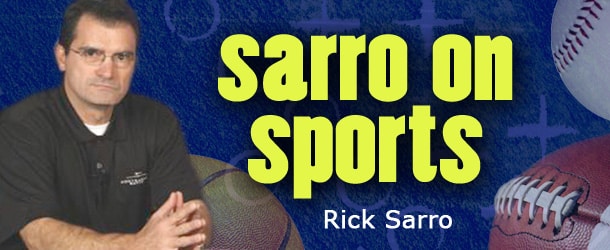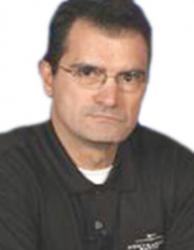The NFL just put on its ultimate reality show in the form of its annual draft. That’s when hundreds of former college football players become reality stars over a three-day period that changes their personal lives and sets in motion what they hope will be a job in professional football.
For the guys who were lucky enough to be selected in the first three rounds, the odds are a bit more favorable that they will end up on a team roster wearing the shield.
Players taken with three digits in front of their names (fourth through seventh rounds) will have a tougher time. But more than a few long shots will surprise pundits and end up sticking.
Saints fans have all cherished the rags-to-riches story of former All Pro receiver Marques Colston, who did more than just hang on for 10 years. The seventh round draft pick from little Hofstra University became the team’s all time franchise leader in receptions, yards and touchdowns while snagging a Super Bowl ring in the process.
There are many Colstons out there, and it’s interesting to see those stories play out.
It’s the high and mighty first-rounders who always deliver the best drama by becoming the leading men in the NFL’s annual reality show, which comes complete with what good TV requires … money, egos, sex, drugs and power.
The first NFL Draft soap opera that grabbed the nation’s attention took place in 1983, when then-Stanford quarterback John Elway warned the Baltimore Colts not to draft him first overall because he would refuse to play for them. Instead, Elway let it be known he would opt to play Major League Baseball for the New York Yankees.
This standoff of wills went on until the Colts did indeed take Elway No. 1. But they promptly traded him to the Denver Broncos, where Elway played his entire 16-year NFL career, winning two Super Bowls and earning a place in the Hall of Fame.
Two other draft-day dramas involved the Manning brothers, Peyton and Eli.
In 1998, the burning question was which quarterback should go No. 1 to the Indianapolis Colts … Peyton Manning or Ryan Leaf. The Colts wisely chose Manning, and the rest is history.
In 2004, it was little brother Eli Manning in the spotlight.
Eli, and even his dad, legendary Saints quarterback Archie Manning, let San Diego know not to draft the younger Manning with the top pick because he simply did not want to play in Southern California. The Mannings caught a lot of grief over the days leading up to the draft. Words like “spoiled,” “arrogant,” “headstrong” and “Elwayesque” were aimed their way.
The Chargers went ahead and drafted Eli with the No. 1 pick, but, as expected, worked out a blockbuster trade that sent Manning to the New York Giants and Phillip Rivers to San Diego.
The rest of the story had Manning winning two Super Bowls for the Giants. Rivers unseated Drew Brees as the Chargers’ quarterback of the future. Brees eventually landed in New Orleans, winning a Super Bowl; breaking all sorts of passing records; and earning a Hall of Fame ticket to Canton.
The first few hours of the draft always seem to have a riveting storyline involving one or two players who either catapult up the draft order or plummet downward. And, of course, the green room’s live TV cameras will catch every tense moment and twitch on the players’ faces as they see their fortunes and future twist in the wind.
Two star quarterbacks with divergent stories experienced this unkindly first round reality.
Former California QB Aaron Rogers was expected to go in the Top 10 in the 2005 draft. But teams kept passing on him, and his face clearly showed his discontent. The chip on his shoulder grew until it was boulder size before Green Bay called his name with the 24th pick.
A few years ago, former Texas A&M quarterback Johnny Manziel was hyped as a possible Top 5 pick. Rumors flew that the Dallas Cowboys would trade up in order to make sure they got the former Heisman Trophy winner and kept the Texas-born Johnny Football in the Lone Star State.
It was Cowboys’ owner Jerry Jones’ smartest decision ever not to go anywhere near Manziel.
He slid down the first-round order, landing at No. 22 with the Cleveland Browns.
Right now, Manziel’s life is like a bad reality show. He is without an NFL team; dropped by at least two big name agents; awaiting possible domestic abuse charges in Dallas. He ended up watching this year’s NFL draft alone in a bar after a Justin Bieber concert in Columbus, Ohio.
All these first-round dramas pale in comparison to what happened in this year’s draft, and was the NFL’s version of Law & Order. Nothing in the history of the draft can ever come close to this. Ole Miss offensive tackle Laremy Tunsil, considered the top offensive lineman in the draft, was sitting as comfortably in that green room as any 300-plus pound giant of a man can in a suit and bowtie. He had to feel pretty good about his draft prospects, knowing good and well that the Rams were taking Cal quarterback Jared Goff at No. 1, and then Philadelphia would select North Dakota State quarterback Carson Wentz with the second pick.
All of a sudden, minutes before the draft began, ESPN reported that a photo had popped up on Tunsil’s Twitter account. It was not just any photo, mind you. This snapshot showed a man with a gas mask smoking what appeared to be marijuana from a bong.
The entire NFL Draft was engulfed in this incredible development that would surely bury Tunsil, a player already plagued with off-the-field problems in Oxford.
It didn’t take long for Tunsil to come clean that it was him behind the mask, possibly puffing his NFL future up in smoke.
The photo morphed into a video. There was confirmation that Tunsil’s Twitter account had indeed been hacked. All this came on top of his earlier suspension by Ole Miss; a series of injuries that put his physical reliability in question; and charges stemming from an altercation with his stepfather, who has since filed a lawsuit against Tunsil. (No shocker there, as good old stepdad would pile on with a money grab.)
Considering how bad the bong video looked — with Tunsil coming out of the gas mask with a huge grin on his face — I thought sure he would have been pushed down to the late first round or maybe even to the second round.
Tunsil caught a break when Miami weighed the damage, the pros and cons, the risk/reward, and took him with the 13th pick.
The former Rebel was passed over by Baltimore and Tennessee, who drafted offensive lineman before him, but the Dolphins apparently couldn’t afford to do the same.
Last season, Dolphin fans saw as many Miami quarterback sacks as Speedos on South Beach. So it was imperative that they find anybody who might help keep QB Ryan Tannehill upright. The Dolphins may have needed Tunsil more than he needed them at that point.
It didn’t take long for the irony to sink in for me that the troubled Tunsil was going to south Florida, where there is no shortage of trouble or temptations. If you don’t believe me, just catch a few episodes of HBO’s Ballers this summer.
But the story didn’t end there, and wasn’t about to end well for Ole Miss, either.
Insert “High Alert” and “Warning” here … All college athletes with prospects of going professional should abandon all social media henceforth.
If you thought Tunsil’s draft night and his lousy luck with timing could not get any worse, think again.
Just before his post-draft selection press conference, his Instagram account was hacked and someone posted texts of Tunsil requesting money from Ole Miss coaches to help pay his rent and family’s utility bills.
I’ve been in these media sessions and events before. The press expects, and demands, to have access to players and coaches. And rightfully so. You can’t usher out all the good guys who save kittens from trees and help the Girl Scouts with their cookie drive without putting a bit of the bad out there as well.
But in hindsight, the unprecedented night Tunsil was having should have prompted the NFL PR machine to figure out some excuse to keep him away from the media as long as they could.
Well, as expected, Tunsil was peppered with new questions about alleged payments from Ole Miss. At first, he denied the whole thing, brushing it aside with, “I’m happy to be in the NFL and I am here to talk about the Miami Dolphins.”
The media probing continued and broke the big man down until Tunsil finally admitted, “I have to say, yeah.”
In a round-about way, Tunsil shifted the negative glare from his embarrassing bong video smack on top of Ole Miss head coach Hugh Freeze, who earlier that night spoke highly of Tunsil’s work ethic, abilities and character.
Once Tunsil agrees to periodic drug tests and puts his blocking skills on display in rookie mini-camps, the furor over Bong Gate will subside. That’s not the case with Freeze and Ole Miss. Media questions will heat up, as will attention from the NCAA and Ole Miss administrators.
Early word is any payments to Tunsil from the Rebel coaching staff were allegedly low level stuff to help cover the light bills. He wasn’t cruising around Oxford in a BMW or spotted at a strip club making it rain.
He’s not to be confused with the aforementioned Manziel.
The full story is clearly not known, so I would warn against a rush to judgment (even though Tunsil’s gasmask antics don’t make him look like a Boy Scout by any stretch).
What I do know is this unbelievably messy draft day affair cost Tunsil upwards of $10 million dollars on his first NFL contract. It puts Ole Miss in the cross hairs of media and NCAA scrutiny whether they deserve it or not.
The saga doesn’t help the NFL’s already tarnished image when it comes to player character and values.
Finally, if you decide to do something stupid and put your professional future at risk, demand what actor John Cusack’s character Lloyd Dodler did in the 1988 movie Say Anything. When you plan to party, designate a “key master” who collects all car keys so everyone gets home safely.
In the case of Tunsil make it a “cell phone master,” and bag ‘em all up.
Better yet, do what Dodler did and just say no to drugs altogether.

















Comments are closed.